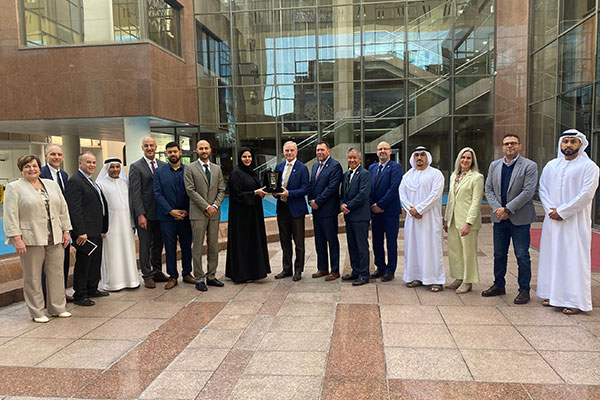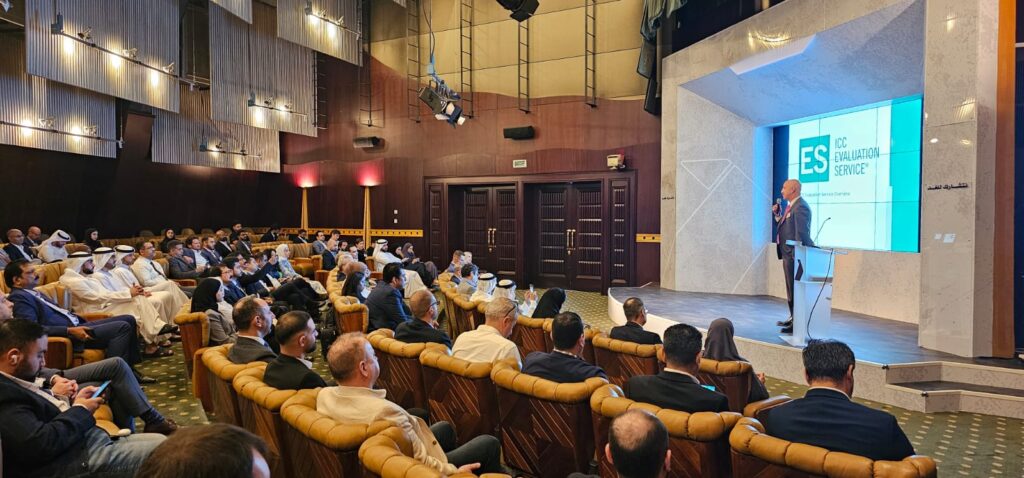
Building Safety in the Middle East: Discussing ICC MENA’s Impact and Vision for the Future
In this Q&A, the Building Safety Journal talked to Mohamed Ahmed Amer, Regional Director of Operations, to explore the significant progress ICC MENA has made over the past four years.
The International Code Council’s Middle East and North Africa (ICC MENA) office has played a pivotal role in enhancing building safety across the region.
In this Q&A, the Building Safety Journal talked to Mohamed Ahmed Amer, Regional Director of Operations, to explore the significant progress ICC MENA has made over the past four years.
We highlight the key strategies behind its evolution and success and discuss the forward-thinking initiatives and prospects that continue to drive sustainable development, ensure building safety and promote innovative construction across the region.

Q: What was the initial focus when the ICC MENA office officially launched in early 2020?
Amer: The ICC MENA office was established to serve as a regional hub for building safety expertise, providing support to local partners and stakeholders. Initially, the focus was on establishing a presence in a region where building safety regulations were evolving rapidly and where the International Code Council had previously worked with Authorities Having Jurisdiction (AHJs) to customize the I-Codes.
The goal was to position the International Code Council as a trusted resource, providing additional support to different stakeholders in the region interested in the full family of Code Council solutions, and offering customized solutions for the unique needs of the MENA region.
Q: How has ICC MENA enhanced brand awareness and recognition in the region?
Amer: Over the past four years, ICC MENA has made significant strides in extending our thought leadership and solutions throughout the region. Through building and strengthening strategic partnerships, offering workshops, providing content in the form of articles and interviews to trade media outlets, attending trade shows and generally increasing the availability of our resources, the office has helped position the International Code Council as a leading voice in the region in promoting building safety.

Q: Can you elaborate on how ICC MENA has provided support through workshops and trade shows?
Amer: Workshops and trade shows have been instrumental in broadening awareness of ICC MENA and interest in the International Code Council solutions. These events have served as platforms for thought leadership and knowledge exchange, allowing us to showcase our expertise and engage directly with industry professionals, aligning our service offerings with evolving market demands.
By consistently participating in these events, we’ve reinforced our presence and established ourselves as a key player in the region’s building safety industry. We have also been able to understand how new technologies are being deployed in the region and feed that information back to Code Council staff and members in the United States and around the world, so there is the opportunity for increased dialogue and mutual learning.

Q: How has ICC MENA added value to the local construction sector?
Amer: Our work in the region has provided essential resources to AHJs interested in improved building safety standards and dramatically expanded our community of stakeholders. We’ve played a key role in strengthening Testing, Inspection and Certification (TIC) solutions for new and innovative building systems, including working with AHJs to enhance their regulations/guidelines to enable the safe use of innovative technologies including 3D concrete printing and offsite construction. By partnering with local authorities, we’ve helped enforce safety standards and raised awareness through focused campaigns and workshops.
Our partnerships expand beyond AHJs, though, and we have been instrumental in building and supporting coalitions that include manufacturers, academics, standards developers and test labs to deliver a unified message about the importance of enabling innovation through appropriate codes, standards and conformity assessment solutions. This was the impetus for establishing the MENA Building Science Advisory Council, which offers support for the Code Council’s mission in the region, as well as a valuable resource for AHJs throughout the MENA.
These efforts have proven influential in promoting building safety standards and aligning the region’s construction practices with global best practices.

Q: How has ICC MENA improved its services since it was established?
Amer: Service delivery has evolved from what was largely an ad hoc approach to a more streamlined and holistic offering. By fortifying our presence through key events and strategic partnerships, we’ve established a more consistent and reliable service model, which is aided considerably by having me in the same time zone, which ensures quicker responses.
Further, as a native Arabic speaker, I am able to accommodate and address cultural details via effective communication in both English and Arabic. This increased focus on customer service has allowed us to expand crucial services in the region, such as the issuance of Evaluation Service Reports (ESRs), which are a key tool for ensuring that innovation can flourish in compliance with safety standards.
Q: How does ICC MENA support the goals of the region?
Amer: The strategic vision documents published by governments throughout the MENA region articulate agendas that focus on sustainable construction, innovation, green growth and digital transformation—areas where the International Code Council’s global mission is closely aligned.
Our efforts in the region are geared towards supporting these long-term goals by offering solutions that promote sustainable and resilient building practices that embrace the use of innovative materials and construction methods.
Q: What does the future look like for ICC MENA?
Amer: Looking ahead, ICC MENA is poised for organic, steady growth. There is so much construction happening here and an immense demand for innovative solutions, best practice knowledge, and leveraging tools that have proven successful in other parts of the world. We plan to deepen our engagement in key markets, including Saudi Arabia, Oman and the UAE, where there’s significant interest in our solutions, while at the same time continuing to engage with AHJs and stakeholders in other markets throughout the region to respond to identified and articulated needs with tailored solutions.
While we see considerable opportunity to expand our TIC business and enhance regulatory support, we view ourselves as trusted advisors – listening to the needs that our partners communicate to us and striving to provide customized service offerings that meet those needs and the growing needs of the region.
We’re also committed to staying ahead of emerging issues such as climate change, fire safety and digital transformation, ensuring that our expertise continues to drive the future of building safety in the MENA region.
Learn More About ICC MENA
The International Code Council has recently launched a dedicated ICC MENA webpage. This new platform is designed to enhance the regional user experience by providing localized content, detailed insights into Code Council solutions and improved accessibility for stakeholders in the MENA region.
To view the new webpage, click here.







